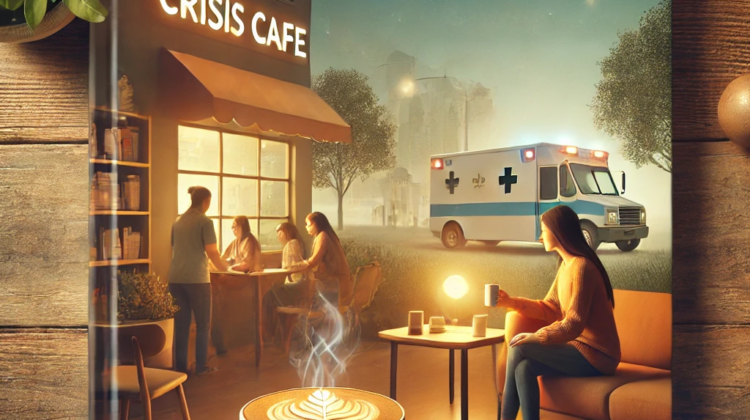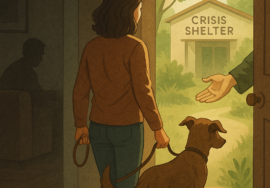
Lattes, Listening, and Life-Saving: A Revolution in Mental Health Care
Picture this: a quiet café, the hum of a coffee machine, the scent of lavender tea, and the calm presence of someone who truly listens. Now imagine this haven is not just for casual meetups but for those grappling with their mental health—a sanctuary amidst the storm. Welcome to the world of crisis cafés and mobile crisis teams, where mental health intervention meets community compassion.
In a world where mental health crises often lead to flashing emergency lights and sterile hospital corridors, a quiet revolution is brewing. It’s one that steps away from the overburdened ER and towards community-driven solutions, changing the narrative on how we respond to emotional turmoil.
The Quiet Heroes of the Mental Health World

Mobile Crisis Teams (MCTs) are the modern-day knights in shining armor, trading swords for empathy and swift action. These teams, composed of mental health professionals, peer counselors, and sometimes specially trained police officers, rush to the aid of individuals experiencing crises—right where they are.
Unlike the jarring sirens of an ambulance, MCTs arrive with calm, bringing not just intervention but hope. Take the CAHOOTS program in Eugene, Oregon, for instance, where a medic and a crisis worker handle over 24,000 calls a year, diverting nearly 20% of law enforcement cases to non-violent, mental health-specific care. It’s not just a win for individuals—it’s a societal shift.
And the data? It sings their praises. Communities with MCTs report fewer hospitalizations, reduced police involvement, and a powerful ripple effect of trust between authorities and residents. It’s a win-win for everyone except perhaps the ER waiting rooms, which are finally getting a break.
Where Lattes Meet Listening: Crisis Cafés

Now, let’s talk about crisis cafés—the mental health havens hiding in plain sight. No cold clinical walls here, just cozy seating, warm beverages, and a listening ear. These cafés, like the Safe Haven locations in the UK, are rewriting the rules of crisis care.
Open during those dreaded hours when loneliness often bites hardest—late nights and weekends—crisis cafés provide immediate, stigma-free support. No judgment, no paperwork, just help. Visitors describe them as “a warm hug for the soul,” offering everything from advice on coping strategies to connections to broader mental health resources.
And the impact? In Bedford, UK, a single crisis café led to a dramatic drop in mental health-related emergency room visits. It’s proof that sometimes, all people need is a compassionate space and the reassurance that they’re not alone.
Why This Matters Now More Than Ever
The urgency for these innovations has never been clearer. With global rates of anxiety and depression surging post-pandemic, mental health systems are teetering on the edge. Traditional methods are overwhelmed, leaving countless individuals to navigate their crises without timely support.
Crisis intervention models like MCTs and cafés are the antidote to this chaos. They prioritize connection over confinement, understanding over urgency, and, most importantly, humanity over hustle. They’re the light in a very dark room.
Building Bridges to a Better Future
Here’s the thing: these models aren’t just about reacting to crises; they’re about preventing them. By providing immediate, accessible support, they empower individuals before their struggles spiral out of control. It’s not just about saving lives—it’s about enriching them.
But to truly make a difference, these programs need to grow. Rural areas, often mental health deserts, must find ways to adapt these models. Governments and communities need to prioritize funding, and mental health stigma must continue to be dismantled.
Join the Revolution
So, what can you do? Advocate for these services in your community. Share stories like this to spread awareness. And if you or someone you know needs help, look into local crisis services—they might just be the lifeline you didn’t know existed. Organizations like the Thompson Crisis Centre in Canada are leading the way in providing compassionate, community-driven support for individuals in crisis.
The time for a mental health care revolution is now. And it starts, not in an emergency room, but in the heart of our communities—where real change always begins.
Let’s rewrite the script, one café table, one compassionate conversation, and one mobile team at a time.


 Beyond Yes and No: How Building a Consent Culture Can Transform Our Communities
Beyond Yes and No: How Building a Consent Culture Can Transform Our Communities





